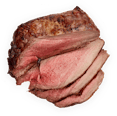 Back
Back
What Your Cravings Mean
Cravings are different than hunger, in the fact that they are a form of communication in the body. Our bodies are smart and intuitive, and our cravings are often signs of what our body needs or what it might be deficient in. Although not always an optimal choice, our cravings are an indication of what nutrients we may be deficient in, and if you listen, you can give the body exactly what it needs, in the best format.

What Your Cravings Mean
by Stephanie Kay
Have you ever craved chocolate so much you drove to the corner store in the middle of the night?
Have you ever craved chips so bad that you downed an entire bag in one go?
Have you ever craved pizza so bad you ate slices until your belly hurt?
If so, you are likely familiar with food cravings.
Cravings are different than hunger, in the fact that they are a form of communication in the body. Our bodies are smart and intuitive, and our cravings are often signs of what our body needs or what it might be deficient in. Although not always an optimal choice, our cravings are an indication of what nutrients we may be deficient in, and if you listen, you can give the body exactly what it needs, in the best format.
Chocolate
A craving for chocolate is often a sign of magnesium deficiency, B vitamins, or chromium. Dark chocolate, not milk chocolate, is a natural source of magnesium, our “anti-stress mineral”. Dark chocolate also helps the body to produce more serotonin, our mood-boosting hormone, so we often crave it in times of emotional stress. Instead of crabbing that cheap candy bar, fix your chocolate craving with cacao nibs or raw cacao powder, or include pumpkin seeds and spinach in the diet on a more regular basis.
Carbohydrates
A constant craving for processed flours is often an indication of insulin resistance, hypoglycemia, or chromium deficiency. If you regularly consume refined grain products such as cereals, crackers, noodles, breads and granola bars, you are likely perpetuating the cycle of craving these same foods. Without adequate fiber, vitamins or minerals, carbohydrate cravings can become heightened. Instead, replace refined carbohydrates at meals with fiber rich vegetables, sweet potatoes, legumes and whole grains such as rice or quinoa.
Sugar
Similar to carbohydrates, if you’ve got a big sweet tooth, you may be experiencing blood sugar imbalances, as well as a deficiency in chromium or magnesium. Adding more fiber rich vegetables can aid in balancing blood sugar and provide adequate nutrition. Additionally, sugar cravings are often linked to dehydration, lack of sleep and stress, so it is important to manage lifestyle factors as well.
Salt
Can’t get enough of salty foods? This may be linked to fluctuating stress hormones or low electrolytes. When it comes to stress, vitamin B rich foods are essential so fill up on nuts, seeds, legumes and whole grains. Moreover, ensure that you are seasoning foods with high quality sea salt or Himalayan salt, and avoiding all processed and iodized salts.
Fried Foods
If you are constantly looking for French fries or love a good batch of chicken fingers, cravings for fried foods may be a sign of essential fatty acid deficiency. Instead of loading up on foods fried in refined vegetable oils, ensure that you are using high quality sources of cooking oil such as olive, avocado or coconut, and do your best to incorporate more fish into your diet, like wild-caught Alaskan salmon, wild-caught Icelandic cod, or wild-caught Lake Erie pickerel, to optimize your essential fatty acid profile.
Article By: Stephanie Kay Nutrition
Posted on
July 15th, 2021







